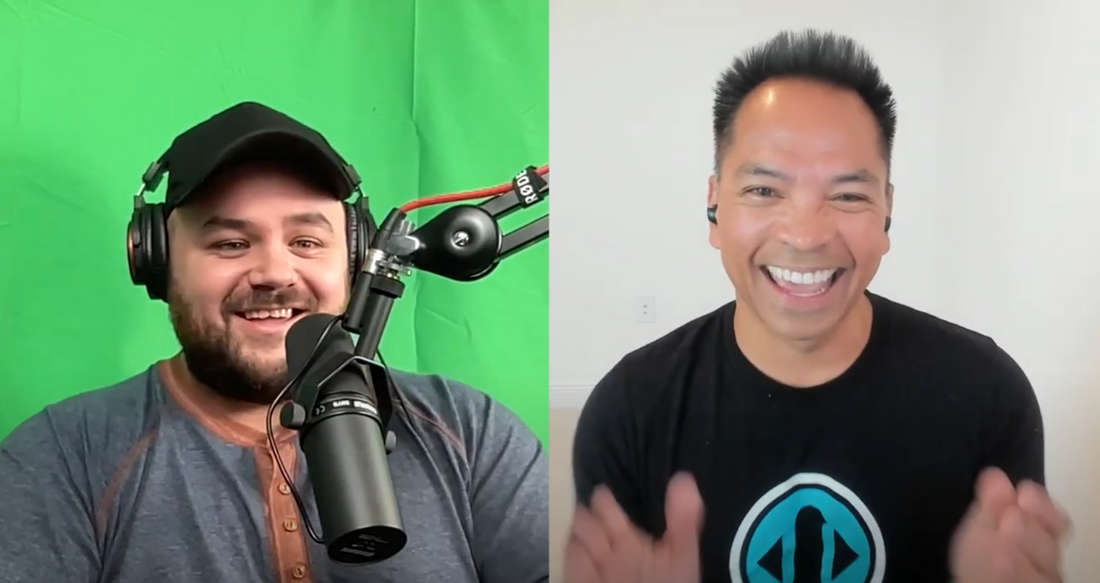
Changing the Narrative on Mental Health
Share
Mental health awareness has grown tremendously over the years, yet suicide rates continue to rise. Why? According to Ricardo Zulueta, the way we approach mental health is fundamentally flawed. Instead of being proactive, we wait until a crisis occurs before seeking help. In a recent podcast interview, Ricardo shared powerful insights on shifting perspectives, taking accountability, and redefining mental wellness.
From Entrepreneur to Mental Health Advocate
Ricardo’s journey began in the corporate world as a financial analyst, but his entrepreneurial spirit led him down a different path. Through his apparel brand, he realized the power of inspiring messages and, ultimately, founded Start Day One, a nonprofit dedicated to proactive mental health and suicide prevention. His mission? To change the global perspective on mental health by addressing the root causes rather than just the symptoms.
The Problem with Today’s Mental Health Approach
One of Ricardo’s main criticisms of modern mental health treatment is its reactive nature. Too often, society treats mental health like physical illness—waiting until people show symptoms before taking action. But mental health isn’t like a broken arm that needs a cast; it’s a constantly evolving state influenced by perspective and decision-making.
People are often told they have depression or anxiety as if these are permanent conditions rather than temporary emotional states. While therapy and medication can be helpful, Ricardo believes that placing too much emphasis on diagnoses can take away personal accountability. Instead of focusing on managing symptoms, he urges people to take proactive steps toward improving their mental well-being.
How Perspective Shapes Mental Health
Our beliefs about mental health can impact our well-being in powerful ways. Ricardo discusses the placebo and nocebo effects—the idea that what we believe can influence our reality. If we’re told that depression is permanent, we might stop looking for ways to improve. However, if we shift our mindset to recognize that emotions fluctuate and that happiness is attainable through action, we gain the power to change our circumstances.
Addiction and the Mental Health Connection
Ricardo also sheds light on addiction, arguing that it’s more mental than physical. Many addiction recovery programs focus on coping mechanisms rather than addressing the root cause of why someone is struggling. By focusing on prevention and mindset shifts, we can create real change instead of just managing symptoms.
Can Money Buy Happiness?
A controversial but thought-provoking part of the conversation was Ricardo’s take on money and happiness. Many people say that money can’t buy happiness, but Ricardo disagrees. While money alone doesn’t guarantee fulfillment, it can remove stressors and open doors to opportunities. However, without a sense of purpose, even the wealthiest people can feel lost.
Finding Purpose: The GPS of Life
So, what does bring happiness? According to Ricardo, it’s purpose. Life can be unpredictable, and challenges will always arise. But having a clear purpose—just like having a GPS when you’re lost—helps you stay on track even when obstacles appear. Without a destination, it’s easy to feel lost and hopeless.
Why “Live in the Present” is Bad Advice
Many people preach the importance of living in the present, but Ricardo warns against taking this advice too literally. While it’s essential to enjoy life in the moment, ignoring the future can lead to poor decisions and instability. The key is balance—embracing the present while still working toward long-term goals.
A Call for a New Mental Health Approach
Ricardo’s message is clear: We need to rethink the way we approach mental health. Instead of waiting for a crisis, we should focus on prevention, perspective shifts, and personal accountability. By redefining what it means to be mentally well, we can create a future where people don’t just cope with life’s challenges—they thrive.
For more insights on proactive mental health, visit Start Day One and join the movement toward a healthier, purpose-driven life.
